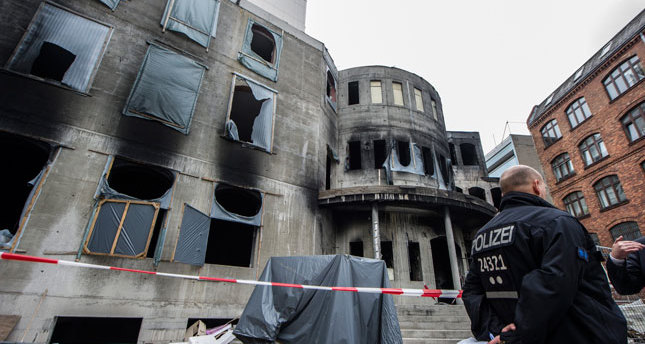 A report released by Parliament’s Human Rights Commission following the burning of three mosques in Germany in August has reached interesting conclusions in its study of Islamophobia in Germany, revealing that the vast majority of perpetrators of such crimes have gone unpunished.
A report released by Parliament’s Human Rights Commission following the burning of three mosques in Germany in August has reached interesting conclusions in its study of Islamophobia in Germany, revealing that the vast majority of perpetrators of such crimes have gone unpunished.
Human Rights Commission President Ayhan Sefer Üstün reported on the comprehensive research carried out in Germany. The parliamentary report states that of the 297 attacks on mosques from 2001 to the present day, 244 (88 percent) of the crimes’ suspects or perpetrators have not been captured. According to the report, “A large portion of these attacks on mosques remain unpunished … opening the way for fear, worry and insecurity among members of the Muslim population.”
The Human Rights Commission, which has previously done research and prepared important reports on the problems of Turks residing in various European countries, decided to carry out the most recent research about attacks on mosques after three mosques were attacked on Aug. 11 and 19 in the German cities of Berlin and Bielefeld.
The commission, preparing its report with the help of the Turkish community and in the light of meetings with officials of the German government, found shocking evidence in its inquiry into the mosque attacks in.
The report cites figures published by the German government, noting that in the 13-year period from 2001 to 2014 there were 297 attacks on Muslim places of worship. It further notes that in 88 percent of these cases, those alleged to have performed the crime were not arrested. According to the same data, while the monthly average until 2011 was one or two attacks, in more recent years this rate has risen to three a month.
While many of the crimes did not receive significant media attention, the report states that the number of attacks has steadily increased. The report also notes that the number of suspects who have been detained by the police but then found to be innocent after investigation has also increased.
The following information was also outlined in the report: “In Germany in the year 2012, of the 67 attacks on people of Turkish origin, 33 had Islamic people or institutions as their target. … In the first nine months of 2014, of the 25 attacks carried out, 14 had religious motives and 10 were attacks on mosques.”
The report continued: “…Germany and also all of Europe have entered a state of xenophobia and racism. Attacks on mosques have increased significantly in recent years. The attacks carried out on three mosques, two in Berlin and one in Bielefeld, which constitute the main factor in the commission’s investigation, targeted the freedom of the rights to life, belief and worship.
“Because of the [German] authorities’ declaration that excluded the possibility of racist or xenophobic motives behind the burning of the Berlin Mevlana Mosque, as a result of media reports that portrayed the events as unimportant and due the hesitant behavior of politicians, the door has been opened for the Turkish community to feel that it is not being protected.
“When faced with this situation, [the commission has observed] that effective deterrents have not been implemented and that police efforts to apprehend perpetrators have been insufficient. Racism and xenophobia are not matters that can be controlled by police measures alone. The education system, the systems of the state, the media and civil society should take action in the struggle against racism.”
